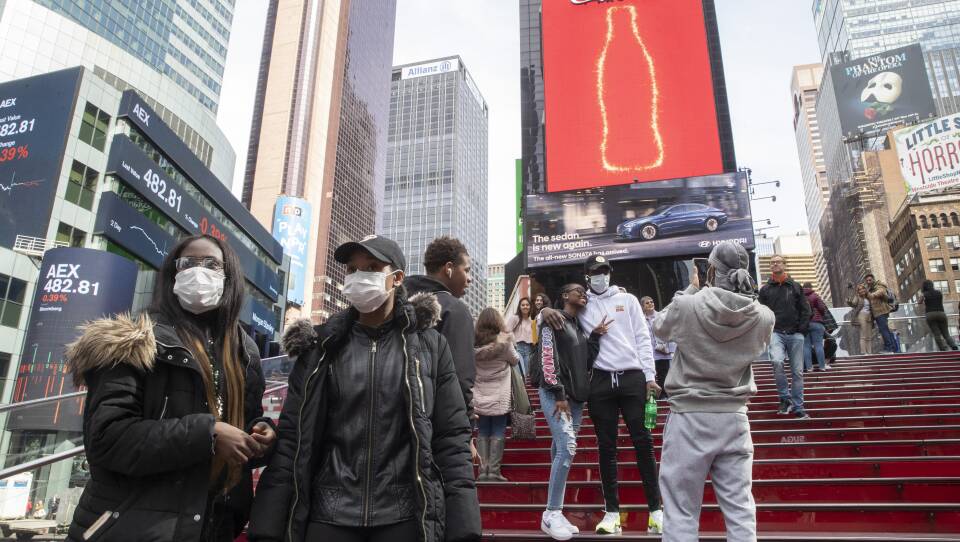Despite the major disruptions to the stock market caused by the spread of the virus, in an interview with Boston Public Radio on Tuesday, MIT economist Jonathan Gruber warned that without federal intervention the lack of economic productivity caused by workers missing work could lead to a chain of events that ripples through the economy.
“Here’s the way to think about it: We’ve got a weird situation where you’re going to have a lot of people unable to go to work. You need to keep them being able to pay their mortgage and pay their bills. At the same time they can’t buy stuff if nobody is going to work,” Gruber said. “So, you need to be able to support people if they can’t buy things, but you also need to prop up the sectors where they need to buy things from.”
President Donald Trump recently called on Congress to work with him to pass immediate economic relief. Among the measures the president proposed was a payroll tax cut to provide Americans with more money in each paycheck, but Gruber said that would be ineffective.
The biggest concern, he said, is assisting workers who are forced to miss work due to sickness or quarantine, particularly non-salaried workers who sacrifice their wages to take time off from work.
“It’s sort of amazing how uniform and apolitical the condemnation of his payroll tax idea has been because it just is a terrible idea,” Gruber said. “Basically the problem we have is a bunch of people are going to be out of work. So, cutting their payroll taxes won’t help. You need to help the people out of work, not the people who still are at work.”
Rather than cut taxes, Gruber said, the federal government should impose a federal sick leave program to ensure that sick workers are financially secure. He also recommended that the government invoke overtime and time-and-a-half pay for workers in critical sectors, like healthcare, to incentivize workers in those fields to keep that sector running during the pandemic.
“What I would propose, and I think this is where they’re heading, is basically starting today that essentially we federalize the pay of sick leave and it’s there for all workers and basically we say look this is a short term emergency... and we’re going to basically unburden the companies from paying for this and also make it available for those workers who don’t have it available,” Gruber said.
Outside of assisting workers, Gruber said that the government will also need to stimulate the production of a vaccine. Given the high costs of developing a vaccine, he said that it would be unwise to rely on private pharmaceutical companies to deliver a drug.
“Drug companies are not evil, they’re just profit maximizing,” Gruber said. “We need to recognize the private sector is failing to produce the kind of vaccines and low cost drugs we need and the government’s going to have to lead in providing ... funding [to] the [National Institutes of Health] and basic science, but funding the drugs themselves.”
Though Gruber acknowledged that the spread of the virus will put a strain on both the economy and the U.S. healthcare system he believes with proper policy the nation could weather the worst of its disruption. What COVID-19 has highlighted, Gruber said, are major flaws in both economic and healthcare policy.
“We need to recognize that this opportunity highlights three fundamental flaws in our government structure,” Gruber said. “One is a lack of funding for pandemic preparation and prevention. The second is a lack of universal sick leave and the third...is financing the development of vaccines and drugs that are not for profitable activities for drug companies.”
Gruber is the Ford Professor of Economics at MIT. His latest book is "Jump-Starting America How Breakthrough Science Can Revive Economic Growth and the American Dream."




